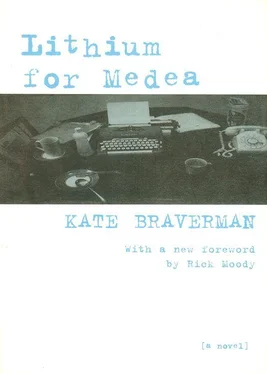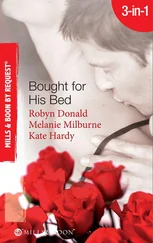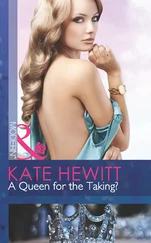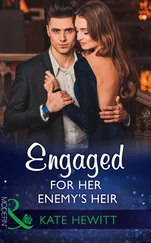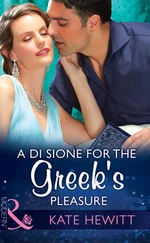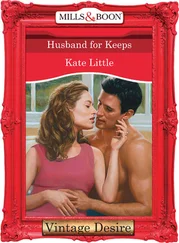And the wheel spins. And twenty years pass. And I realize that she was right. I have never seen a bird build a nest since. Just that once. Just one rainy afternoon. A robin in Philadelphia.
“Do you remember when we loved fairy tales?” Francine asked.
I looked at her. She was leaning her elbows against the Formica hospital cafeteria tabletop. Her eyes were a pale dreamy yellow.
Mommy gives me a book of fairy tales. The cover of the book is a glistening sunny gold. When I touch the golden cover I feel like a princess in one of the illustrations. Francine is reading a story to me. “Remember this moment,” she suddenly says.
I look up, startled. We are sitting under a tree with big thick dark green leaves, leaves that seem heavy, larger than my father’s hands.
“If you only remember one pure moment, remember this,” Mommy says. She brings her face very close to mine. “I love you. I want you to remember we sat here together and I loved you. I’ll help you remember. Watch me.”
I watched my mother. A purple and yellow pansy was growing near the sidewalk. Francine picked it. She pressed it gently against my face. “See how it feels like velvet?” she asked. “Look at the sky. See how blue it is? See the leaves? How green they are?” I nodded my head. What was my mother doing?
Francine picked up the purple and yellow pansy. She opened the fairy tale book with its fine golden cover. She placed the flower carefully on the front page. Then she closed the book. When she opened the book again, the flower was pressed into the page, a purplish imprint.
“Whenever you open this book you’ll see the flower. You’ll remember when we sat under the tree and how much I love you. And this moment will last forever,” Mommy said. That was before my father got the first cancer. That was before strangers came and took away her brass lamps and the new china plates. That was before they carted off the sofa and chairs and my mother watched from the porch and wept.
“Was I a good mother?” Francine suddenly asked.
“You were imaginative. Remember when we froze the moment absolutely and took the flower and—”
“It was a pansy. I pressed it inside the fairy tale book you had. It had a gold cover,” Francine said. She lit a cigarette. “Do you still have it?”
“Yes.”
“I was inventive in my neurotic way, wasn’t I? Remember when you had measles? You were sick. You were always sick, right from the beginning. You were burning up with fever. I sat by your bed all day and sewed red spots onto your rag doll. It took eight hours to stitch all the red patches on. I wanted to amuse you.” My mother looked at me. Her eyes were like a cat’s, a tiger’s, a fiery yellow. They looked lit from the inside.
“What went wrong?” Francine asked softly.
I was sitting up very straight in my scooped-out plastic chair. It was essential that I remain calm under all the layers of sharp white light, under the chips and spokes. Yes, of course I knew where I was. In the hospital cafeteria with my mother, drinking coffee, trying to wake up, waiting for something to start kicking, to explode in my bloodstream like a newborn yellow sun. And I want to be warmed, rocked with a secret force and heat swell. I want a shot. It’s been days. And, Mommy, my bones feel improperly arranged. They’re somehow creased and cold at their centers, deep inside where there once was marrow. And I want the coating of ice to fall off.
After a long time I said, “We grew up.”
And it wasn’t enough, not nearly. I sat up very straight in my chair. Francine was wondering if she had been a good mother. She wanted to know what she had given me. Was she in the red? The black?
“Did you notice the white-tipped mountains? It’s kite season,” Francine observed.
And I wanted to be a kite. I wanted to feel alive again, punched open, face wide, heart racing and feet moving, feet really moving again after all the limping and scraping. I wanted to feel my slow thick blood really and finally pumping. I wanted to learn how to breathe at last, how to do more than numbly gasp and force the air into my lungs painfully, out of duty. I wanted more, my cells dancing and assured, throbbing, real. God, I wanted a shot.
“I should go to Aspen,” Francine said. “When this is over, we’ll go skiing.”
I shook my head no. Francine regarded me coldly, oddly. But no, she wasn’t really looking at me. She was simply studying the thing that sat near her, the slow huddled cold numb slab, the impersonator.
“You keep sticking it to me.” Francine banged her fist against the table. “Jesus. Right from the start. You never stopped crying. You were born trying to scratch out your eyes. They had to tie up your hands in the hospital with special silk mittens. You wouldn’t eat right, wouldn’t shit right.” Francine lit a cigarette. “You refuse what I offer you. Then you act deprived and blame me.”
“Come on, Francine. I’m damaged but not an amnesiac,” I said. “Generosity isn’t your strong suit. You’re fueled entirely by guilt.”
“But at least I move. You just drag your ass. You’re a walking nervous breakdown. Year after year. You introjected my personality minus the guts. Look at your father up there,” my mother cried. “That’s guts. He’s struggling just to live a few more months. You squandered your life.” My mother stood up. “You better loosen up. Be eclectic. Get off that edge you’re hanging on to. Do you follow me? I mean shit or get off the pot.” I watched my mother walk out of the room.
My father was sitting up in bed. More of his head dressing had been removed. His eyeglasses fit easily around his ears again. He looked gray, worn and weary, a granite mountain being ground down. He was reading the sports page.
THEY MADE ME WALK AGAIN.
“How did you do?”
I TRAILED THE FIELD. NEXT STOP CALIENTE.
“You’ll have a long rest, Daddy. Come back fresh.”
SAW PTLAND ON TV LAST NITE.
“How was the game?” I felt myself smile. In the beginning my father had refused to watch television. He said the noise made him dizzy, made his eyes hurt.
WALTON BEST EVER SAW. WORTH LIVING 4.
We considered this in silence. Francine had pulled the blinds open. It was still morning. I was thinking if I could just take one shot, I could wake up. If I could just have one shot, I would feel the train start to move through me. I could careen wildly down black tracks and stream through gullies, my fists and teeth grinding like engine parts and my body weaving, swaying with the motion, the sudden hard curves. If I could just have one shot my lungs would become steam and my heart would start pumping. The train would begin running through a day gigantic and borderless. My heart would pump painfully, insanely, providing the rhythm, the many sharp wheels. I could reel into noon and bellow down thin tracks, thin black metal grooves like twin rows of tiny black stitches.
If I could just take one shot, I could be riding that train. With one shot, I could be the train. I would wind around a ridge and plunge through a valley. The train. Yes. An express. Yes. A runaway with no one driving. A train that just kept going, going. Silence would be smashed by the black whistle shrill at some indifferent station where moths coughed in an arc of light. I would pass the familiar scattered bits, smoky magnetic ruins in their own riptide. I would glimpse them from the window, partial, drilled with neon, while steam curled like white fingers reaching out of a grave.
BAD SCARS. I LOOK LIKE A CRAZY QUILT.
“We’ll find a way to cover them. They won’t show when you’re dressed.”
WILL TELL PEOPLE AM VICTIM OF PLANE CRASH.
“Sure. You could do that,” I said.
Читать дальше
